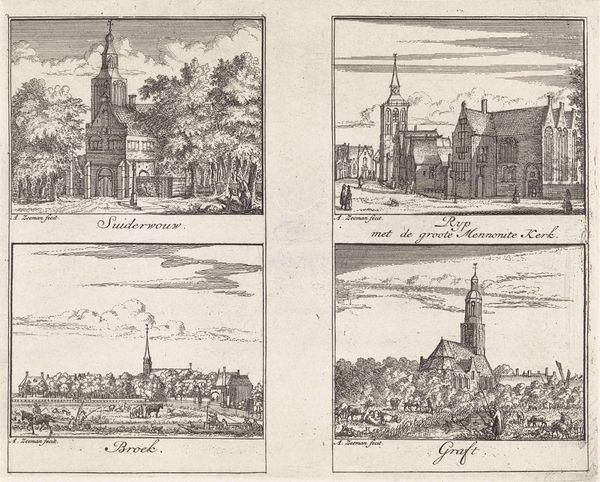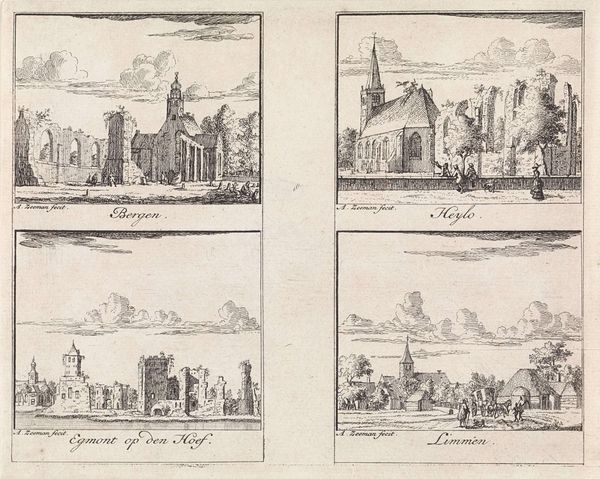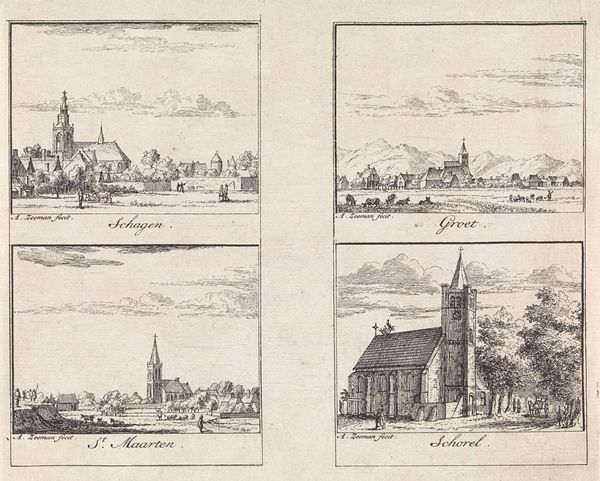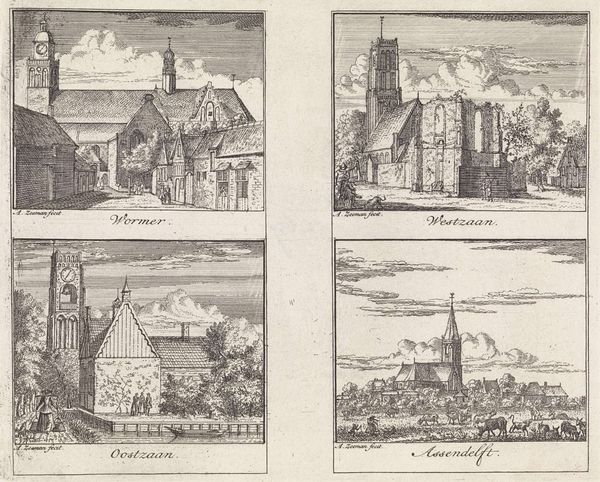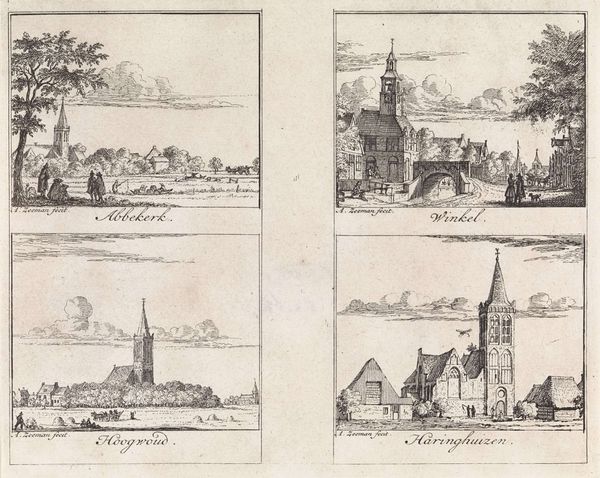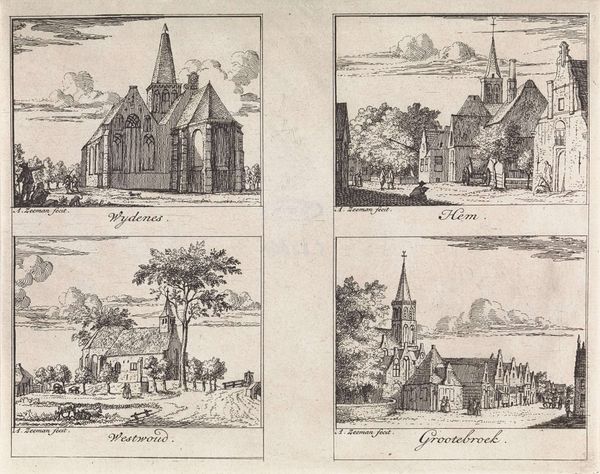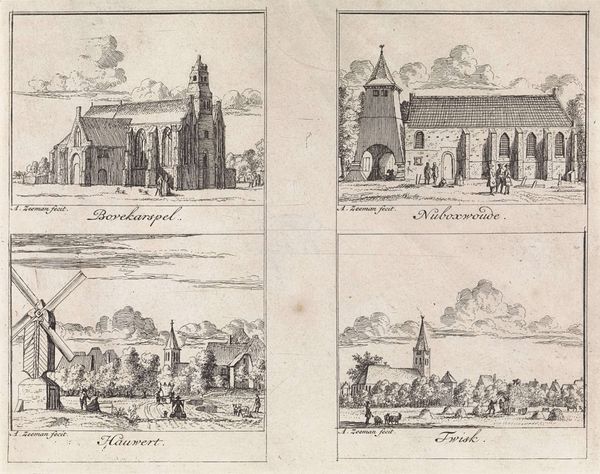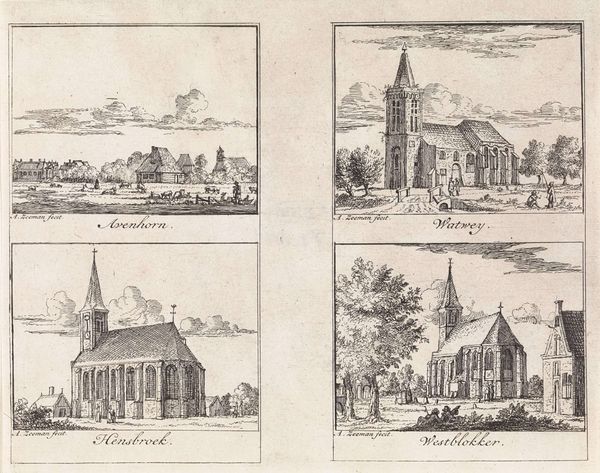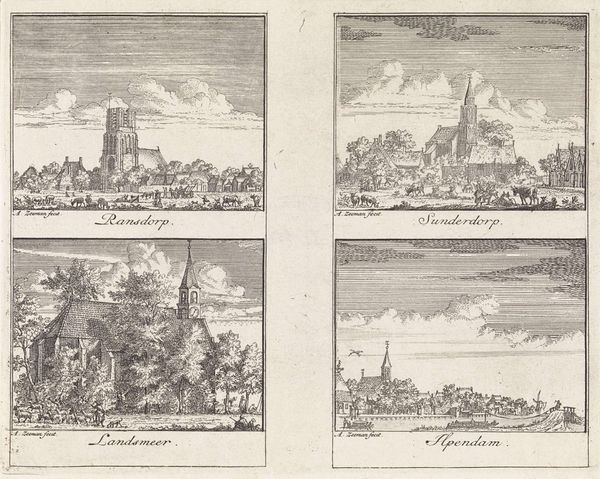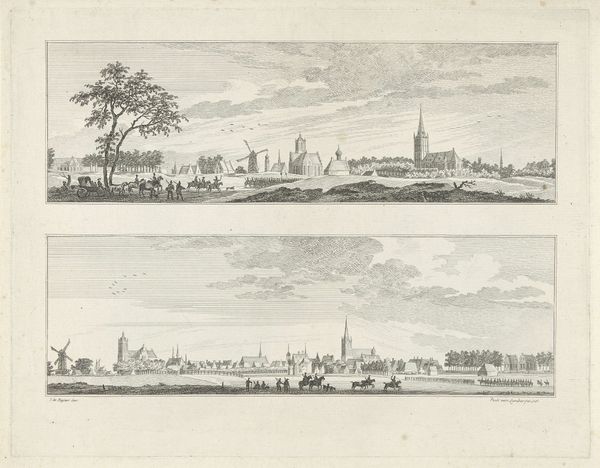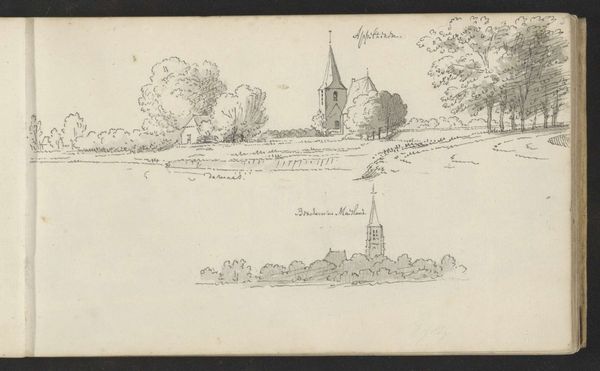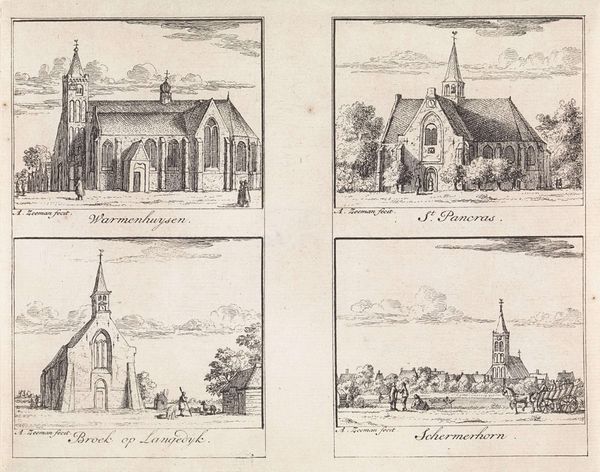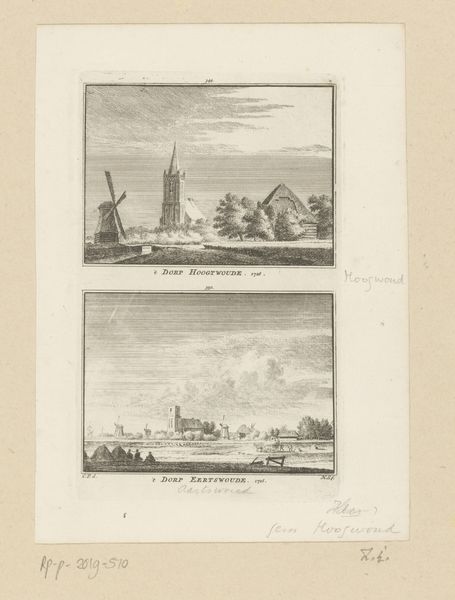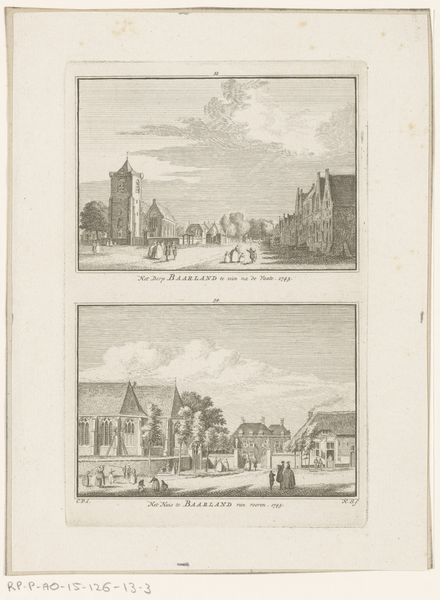
drawing, print, engraving, architecture
#
drawing
#
baroque
# print
#
pen sketch
#
landscape
#
line
#
cityscape
#
northern-renaissance
#
engraving
#
architecture
#
realism
Dimensions: height 148 mm, width 185 mm
Copyright: Rijks Museum: Open Domain
Abraham Zeeman created this drawing of Castricum, Heemskerk, Beverwijk en Spaarndam sometime in the 18th century. The composition is neatly divided into four distinct panels, each offering a view of a different locality, rendered in fine, precise lines. The uniformity in perspective and style across these panels suggests a desire for an objective, almost cartographic representation. Zeeman employs a visual language that seems to echo the rationalist spirit of the Enlightenment. Buildings and landscapes are depicted with a clarity that borders on the schematic, where each structure is reduced to its basic geometric forms. Note the verticality of the church towers in Castricum and Beverwijk, which create a sense of stability and order. However, in the Heemskerk panel, we see the ruins, a kind of aesthetic and philosophical counterpoint: here, the decay introduces an element of temporality, challenging the notion of a fixed, eternal order. These views offer an insight into the period's understanding of space, not just as a visual field, but as a structured, ordered entity.
Comments
No comments
Be the first to comment and join the conversation on the ultimate creative platform.
